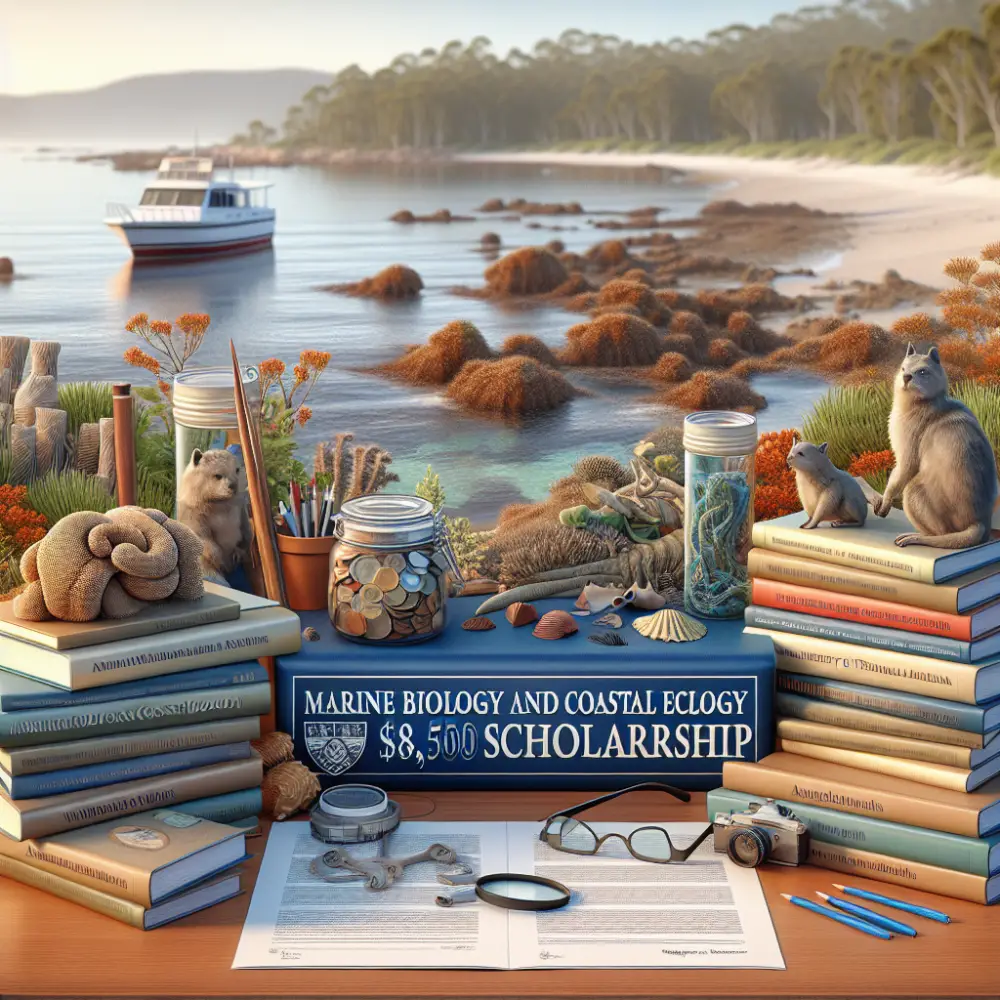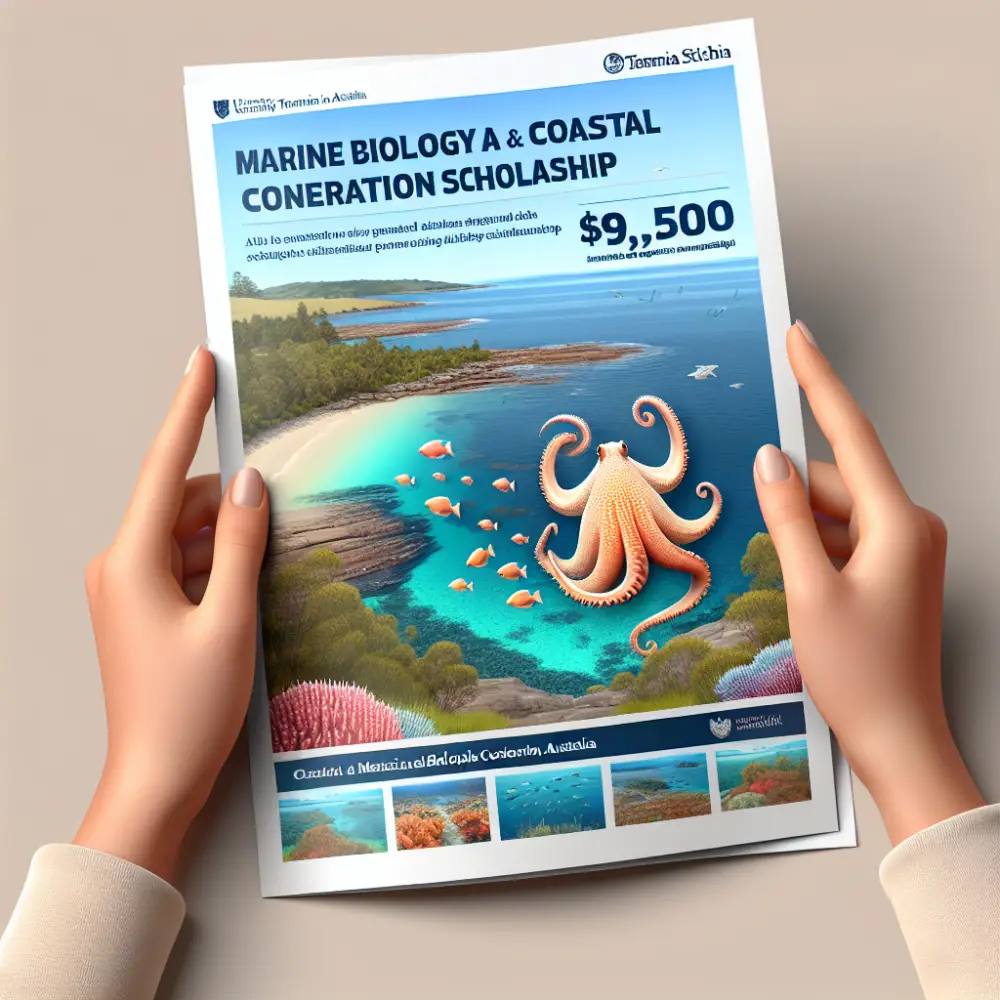Scholarship details
In an era reshaped by climate change and environmental degradation, the role of conservation and wildlife studies has never been more critical. Addressing these global challenges requires dedicated education and research. Recognizing this need, the University of Tasmania, Australia, has introduced the A$9,500 Ecological Conservation and Wildlife Studies Scholarship for 2025. This scholarship opens doors to aspiring conservationists and wildlife experts, offering them the chance to study in one of Australia’s most ecologically diverse regions.
University of Tasmania: A Beacon for Conservation Studies
The University of Tasmania (UTAS) is a venerable institution known for its robust academic programs and research facilities. Founded in 1890, UTAS has consistently demonstrated its commitment to excellence in education and research. Ranked among the top 2% of universities worldwide, it has established a reputation for being a leader in various academic fields, including science, technology, engineering, and mathematics (STEM).
UTAS has a deep-rooted commitment to ecological conservation, underlined by its world-class research conducted by the Institute for Marine and Antarctic Studies (IMAS). Researchers at IMAS are involved in groundbreaking work that ranges from marine biology to climate science. The university’s dedication to these areas makes it a fitting host for the A$9,500 Ecological Conservation and Wildlife Studies Scholarship.
Studying in Australia: A Land of Diverse Ecosystems
Australia’s unique geographical position endows it with some of the most diverse ecosystems on the planet. From the arid expanses of the Outback to the lush rainforests of Queensland, Australia’s natural landscape offers unparalleled opportunities for ecological and wildlife studies. Tasmania, the island state south of the mainland, is known for its rugged wilderness and rich biodiversity, serving as an ideal backdrop for students pursuing conservation education.
Tasmania’s environment boasts a remarkable array of flora and fauna found nowhere else on Earth. For instance, the Tasmanian devil and quolls represent some of the unique species sustained by the island’s habitats. Studying in Tasmania provides students with a hands-on learning experience, as they engage directly with these unique ecosystems.
Scholarship Details and Eligibility
The A$9,500 Ecological Conservation and Wildlife Studies Scholarship offers financial support to both domestic and international students. This scholarship is aimed at those who have demonstrated a keen interest in conservation issues and have a strong academic record. Applicants are required to provide proof of their academic achievements and a statement of purpose detailing their aspirations in the field of ecological conservation and wildlife studies.
Comparative Opportunities: Scholarships Around the Globe
Although the University of Tasmania’s scholarship stands out, it is worth noting that several other scholarships offer opportunities to students worldwide. For example, a $500 Scholarship for STEM Undergraduate Students in Malaysia, 2024, supports Malaysian students pursuing studies in STEM fields. Providing financial aid, this scholarship aims to foster talent among young scientists and researchers in Malaysia.
Similarly, the CONICYT Scholarship in the Netherlands 2023 is another valuable opportunity for international students. This scholarship offers a 25% discount on total tuition fees for students enrolling in science and engineering programs. These scholarships represent a global commitment to nurturing talent across various disciplines, much like the A$9,500 scholarship in Tasmania.
Application Process and Deadlines
Prospective students interested in the A$9,500 Ecological Conservation and Wildlife Studies Scholarship must submit their applications by the deadline, typically around mid-year. The application process involves completing an online form, submitting academic transcripts, and writing a personal statement. Additionally, letters of recommendation from academic or professional references may be required.
Once the application is submitted, a selection committee reviews the entries based on academic excellence, relevance of the applicants’ aspirations to conservation, and demonstrated commitment to environmental issues. Successful candidates are then invited for an interview or further assessment as part of the selection process.
Learning Beyond the Classroom
One of the distinguishing features of the University of Tasmania’s program is its emphasis on experiential learning. Beyond the classroom, students engage in fieldwork that takes them into Tasmania’s natural habitats. They conduct biodiversity assessments, monitor wildlife populations, and participate in conservation projects. This hands-on experience is integral to understanding the challenges and solutions related to ecological conservation.
Furthermore, UTAS fosters partnerships with local and international environmental organizations, offering students the chance to collaborate on real-world projects. These connections are invaluable, providing networking opportunities and practical experience that enhance students’ employability in the conservation sector.
Alumni Success Stories
Graduates of UTAS’s conservation and wildlife programs have gone on to make significant contributions to the field. Alumni have secured positions with leading environmental organizations, government agencies, and academic institutions. Their work ranges from conducting ecological research and implementing conservation strategies to advocating for environmental policies.
For instance, a UTAS alumnus who specialized in marine biology now works with an international NGO focused on marine conservation. Their efforts contribute to protecting marine ecosystems worldwide, showcasing the impact that an education from the University of Tasmania can have on a global scale.
The Broader Impact of Scholarships on Conservation Efforts
Scholarships like the A$9,500 Ecological Conservation and Wildlife Studies Scholarship play a crucial role in advancing conservation efforts. By reducing financial barriers, these scholarships enable talented individuals to pursue their passion for environmental protection and sustainability. The knowledge and skills they acquire empower them to address pressing environmental issues and contribute to the preservation of our planet’s biodiversity.
Moreover, the scholarship signifies the University of Tasmania’s commitment to fostering the next generation of conservation leaders. It aligns with global efforts to achieve sustainable development goals and combat environmental challenges. By investing in education and research, the university plays a pivotal role in shaping a sustainable future.
Conclusion
The A$9,500 Ecological Conservation and Wildlife Studies Scholarship at the University of Tasmania is a significant opportunity for aspiring conservationists and wildlife experts. It provides not only financial support but also a unique chance to study in one of the world’s most ecologically diverse regions. The University of Tasmania’s commitment to excellence in education and research, combined with Tasmania’s rich biodiversity, offers an unparalleled educational experience.
For students passionate about making a difference in the field of ecological conservation, this scholarship is a gateway to achieving their goals. As part of a global community dedicated to environmental sustainability, UTAS alumni contribute to addressing some of the most pressing issues facing our planet today. Through scholarships and dedicated programs, the University of Tasmania continues to inspire and empower the environmental leaders of tomorrow.





















